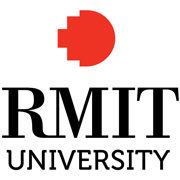Gain technical expertise and stand out in a competitive industry with an online Master of Marketing. Specialisations in analytics and digital marketing are available.

If you want to succeed in modern marketing, you need digital literacy and technological know-how. A master's degree will help you achieve learning goals, stand out from others, and gain a lasting career advantage.
Let's explore the options for postgraduate study of marketing. Master's courses are open to experienced marketers as well as professionals looking to shift careers. You can do a general program, specialise in a field such as digital marketing, or do an MBA with a marketing concentration.
Why Masters Degrees Are Worth It

Marketing has evolved into a field that relies on digital technology skills. And this is perhaps the number one reason why marketing masters are worth it. Advanced studies develop the aptitudes to leverage technology to your advantage.
The future of the profession will revolve around digital platforms, analytics, machine learning, and other technology-driven growth areas. If you want to maximise your chances for career success, you need to keep up. Modern marketers need a healthy dose of technical expertise to complement timeless attributes such as effective communication and good research skills.
Programs contain varied subjects that will equip you to take on almost any role in the industry. You will gain a permanent career advantage, with the potential to cover the costs of your education many times over. Furthermore, online courses allow you to study part-time while you continue working full-time.
Masters in Marketing Online

An online marketing masters is the ultimate education if you're serious about a career in this field in Australia. A good program supports the needs of different students. In your virtual classes, you may find business graduates, non-business graduates, and experienced marketing professionals.
RMIT Online - Master of Marketing
The Master of Marketing at RMIT University is a comprehensive program that guides students through all the essential activities that industry professionals undertake. Students study topics such as brand strategy, services marketing, product innovation, interactive marketing, data analytics, advanced digital marketing, and customer experience. The program comprises 12 subjects, each lasting for only 7 weeks, allowing students to complete the course while working full-time. The degree is 100% online and is accredited by the Australian Marketing Institute, making it an ideal choice for working professionals.
Digital Marketing

As the world becomes increasingly digital, so does marketing. A specialisation in digital marketing offers technical expertise and strategic skills to succeed. While a general master's will cover digital topics, a specialist program provides in-depth and focused training. This kind of degree is rated as one of the top 10 master's degrees because it develops high-value skills.
Marketing Analytics
If you have strong ability in extracting meaning out of data, an analytics specialisation for your master's degree may be ideal.
A Masters in Marketing Analytics offers great value in the job market. Sales and promotion activities are far more effective when grounded by sound data analytics on customers and campaign performance.
To study for an analytics-focused degree, you should have technical aptitude. Online classes are usually a mixture of technology professionals and those with a business background... READ MORE
MBA in Digital Marketing
Balance marketing education with business management training by studying for an MBA (Digital Marketing).
A Master of Business Administration degree with this specialisation helps you move into both executive marketing and general leadership roles. You gain strong exposure to the latest developments in online selling while building skills in areas such as accounting, economics, finance, governance, leadership and negotiation.
An MBA program is suitable whether or not you have a business background. Subjects are taught from a manager's perspective... READ MORE
What You'll Study (Course Structure)
Masters programs are comprehensive, covering all key knowledge areas. Topics include data-driven decisions, consumer insights and analytics, digital strategies to take advantage of online capabilities, and applied market research.
The programs typically consist of 12 subjects, including core subjects and elective units. With accelerated online programs, you're able to study part-time while working full-time. You complete one subject every couple of months, allowing the degree to be earned in two years.
To give you an idea about course structure, here are example subjects from relevant programs.
General program
The subject introduces research techniques that you can apply to management problems as well as academic research within the marketing field. Topics are presented within a philosophy-of-science framework. Each stage of the market research process is investigated, including (a) defining the problem (b) theoretical framework (c) hypotheses generation and (d) research design. Key research methods are shown, from univariate to bivariate and multivariate.
Source: University of Western Australia (UWA)
The subject explores brand management. You learn how to evaluate, develop and build brands, and measure brand performance and digital media impacts. A brand is a key organisational asset that depends on past and recent branding efforts. Students examine how marketers manage brand perception and value and develop brand strategies across different services. Close attention is given to the roles customers and other stakeholders play in shaping and growing a brand.
Source: RMIT University
The course examines consumer behaviour broadly. Understanding consumer attitudes and responses to marketing is what drives the success of marketers as well as business leaders and organisations. Students are challenged to think in different, critical and practical ways about customer insights and how to leverage knowledge. Deakin University uses different media platforms to explore how to exploit consumer behavioural awareness for commercial, government and non-profit organisations. The units draws on the fields of psychology, behavioural economics, social psychology, sociology and even philosophy.
Source: Deakin University
In this course, students consolidate and extend what they've learned in previous units by applying theory and concepts to real-life business scenarios. The focus is on knowing, quantifying and managing business success elements from a strategic viewpoint. Students use strategic principles and learn to grapple with market challenges and exploit opportunities. You are trained in critical as well as creative thinking, both of which are core capabilities for strategic marketers and business leaders. The subject also requires that you build evidence-based arguments, which are integrated into innovative solutions.
Source: RMIT University
There has been a convergence of consumers, brands, technologies and platforms. The course examines how marketers use emerging technologies as part of a business development strategy. Students explore how new technologies are being used to enlarge brand experiences and capture strategic business opportunities. There is a focus on how to make decisions about the value of a technology to a particular project or organisation.
Source: UTS Online
The course examines the many different stakeholders in the digital world. We identify data sources and how to develop insights by quantifying and assessing digital engagement. You learn how to achieve marketing goals by the evidence-based driving of online engagement.
Source: UTS
The course will teach you how to use analytical tools to tackle marketing problems. In other words, you will gain key skills that many companies are looking for in marketers, especially in competitive markets. Students are introduced to a host of statistical tools and methods, from classical ones to new big data techniques. The emphasis is practical; how to apply and interpret statistical methods to answer questions. The course is structured around daily problems. You're encouraged to think as a marketer by asking questions of data, setting your own direction for analysis and contemplating how a company could apply the results.
Source: UNSW
The course introduces foundation concepts and activities, focusing on how to manage an organisation's advertising, branding and promotions efforts. Key topics include high-value marketing, choosing target markets, managing products and brands, communications, managing distribution channels, pricing, and ethics. The subject also explores the nature of buyer behaviour, such as decision patterns, purchasing psychology, and customer satisfaction.
Source: University of Melbourne (UniMelb)
Digital marketing specialisation
In this subject, you explore how data can be gathered and transformed into decision tools for all stages of a campaign. Steps include ideation, innovation, product development, branding and communications strategy, communication, performance assessment, and interaction with customers. The course helps students discover how to transform data from the innocuous into a dynamic and powerful asset.
Source: Swinburne University
In this course, you learn about the dynamic field of digital marketing and the potential it has. The best outcomes rely on knowing how old and new products can be marketed using both digital and traditional platforms. Students develop their awareness of how new technologies affect customer relations, quality assurance, pricing and order fulfilment.
Source: Swinburne University
Every marketing decision has a first step. You need to understand consumers and build up a relationship with them. Effective managers know: how to identify target customer needs, where they shop, and how to best interact with them in the marketplace. This unit blends customer relationship management (CRM) with big data analytics. The applications range from attracting consumers, retaining customers and inducing referrals to re-inviting patchy or lost customers. You use prediction, recommendation and natural language processing. Students do hands-on data analysis and deal with real-world customer problems.
Source: UNSW
In this unit, you explore what social media and digital technologies mean for professional marketing. Students are introduced to analytic methods for converting social and digital data to useful observations. You explore how social media and digital technology shape customer acquisition and retention, and customer relationship management. You also gain foundational skills in social media and digital analytics, including instruction on how to create monitors and analytical metrics.
Source: UNSW
A new type of mindset is needed to stay ahead of the fast-paced digital game. Developing your mindset is a core part of this subject. Students learn how to explain and apply digital marketing concepts, do a digital audit, and see the benefits of a plan that integrates new and old tools. You study concepts that will continue to work as digital platforms evolve, learning about integrated communications, creativity, exceptional communication, problem solving, and critical thinking.
Source: Griffith University
Let's explore emerging interactive technologies, especially social media, and the ways for business to use the technologies to serve markets. The subject looks at how new technology capabilities have the potential to be instrumental in a firm's strategy. Sophisticated consumers increasingly participate in branding as opposed to being a passive audience. We examine how marketers can stir discussion, help create experiences and news stories, and build relationships with consumers.
Source: University of Sydney (USyd)
You develop digital strategies in this unit by combining market insights with the available marketing options. Students select target markets based on a mixture of data and the accompanying digital methods to attain business goals. You can obtain a good grasp of the best options for the particular preferences of the target market.
Source: UTS
Contemporary retailing is the seamless melding of digital and physical stores. In this omnichannel environment, products and services are purchased and consumer experiences derived, creating value for both the retailer and customer. The subject explores strategies in retailing management, with topics such as strategy in competitive markets, experiential retailing service consumption, online and offline omnichannel retailing, managing relationships with customers and supplies, product management, branding, and use of big data. Practical case studies are included in the course.
Source: University of Melbourne (UniMelb)
Learning Outcomes
Graduates should come away with a sound understanding of marketing fundamentals, fluency in writing or talking about technical subjects, applied skills in digital marketing, and management strategies to achieve consistent success.
You will gain a well-rounded body of skills and knowledge to take on diverse industry roles. While your individual development results depend on the program, including core subjects and electives, here are potential learning outcomes you can achieve.
Leadership and communication
Be an authoritative marketing expert, communicating the business value of campaigns and guiding teams from strategic planning through to execution.
Future-focused skills
Recognise emerging industry trends and opportunities, applying technology skills to measure and optimise digital promotion strategies.
Marketing knowledge and concepts
Generate strategies to that lead to impactful business and marketing solutions. Bring expert knowledge of techniques to solve different problems.
Critical thinking and analytical skills
Identify and systematically evaluate marketing opportunities. Use data analytics to uncover solutions that put your organisation ahead of the competition.
Career Opportunities

A master's degree can be used to (a) upskill if you're already in marketing or (b) enter the profession. In either case, the program will give you access to jobs that may currently be out of reach.
The degree opens up career opportunities by providing you with new cutting-edge skills and knowledge, as well as a respected university qualification. Employment of Advertising and Marketing Professionals is growing, with jobs in Australia projected to increase by 11.4% to 89,000 over the five years to 2027.
Generally, marketing degrees are worth it because of strong demand for professionals in this industry. Potential job titles include marketing manager, marketing director, head of marketing, digital marketing coordinator, campaign manager, brand manager, and customer success executive.
Entry Requirements
Entry requirements vary by program. Direct entry is generally assured if you have a business degree. If you have an unrelated degree or no degree, you may still gain access based on experience and/or by enrolling in an embedded graduate certificate course.
Here are examples of course admission requirements. Enquire for further details.
Recognition of prior learning is provided. Prior learning, mainly in the form of a business degree or marketing graduate certificate, allows you to earn the master's degree by completing 12 subjects instead of 16. Advanced standing also applies to applicants with a relevant graduate diploma.
For the 12-subject program, you need an Australian bachelor degree or equivalent in a business or related discipline OR the RMIT Graduate Certificate in Marketing.
For the 16-subject program, the entry requirement is an Australian bachelor degree (or equivalent or higher qualification) in any discipline.
For those without a degree, extensive professional experience (5+ years) may provide an alternative pathway via the RMIT Graduate Certificate.
English language proficiency requirements apply to applicants from a non English speaking background. Fully online courses are unsuitable for international students in Australia on a student visa.
Tuition fees are $4,080 per subject in 2024. FEE-HELP loans from the Australian Government are automatically available to eligible local students.
Key dates: Intakes are available in Jan, Mar, May, July, Aug, Oct.




